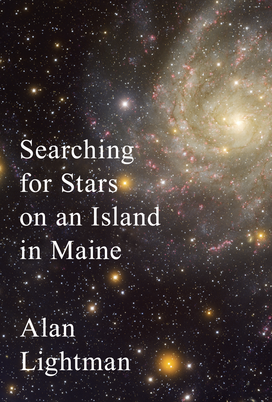Alan Lightman ’70 Explores the Intersection of Science and Spirituality

The author: Alan Lightman ’70 worked for many years as a theoretical physicist and has written six novels, including Einstein’s Dreams. He has also written a memoir, three collections of essays, and several books on scientific topics.
Opening lines: 1979. Smell of damp earth and stone. In the dim light, a small group of people talk in hushed voices as if entering a church, spellbound by the paintings on the rock wall: bison and mammoth and horse, colored with red ochre made from dirt and charcoal and bound with saliva and animal fat. I am without words, another ghost in this primordial cave in southwestern France. Fount-de-Gaume it is called. The cave paintings date to 17,000 B.C. and were discovered by a local schoolmaster a century ago. Hand-drawn shapes swerve and flow following the natural contours of the stone walls. … Clearly, these early humans were consummate artists with a heightened connection to nature. Did they also believe in an ethereal world? Did they believe in the invisible?
Reviews: “Lightman’s illuminating language and crisp imagery aim to ignite a sense of wonder in any reader who’s ever pondered the universe, our world, and the nature of human consciousness.” —Publishers Weekly












No responses yet